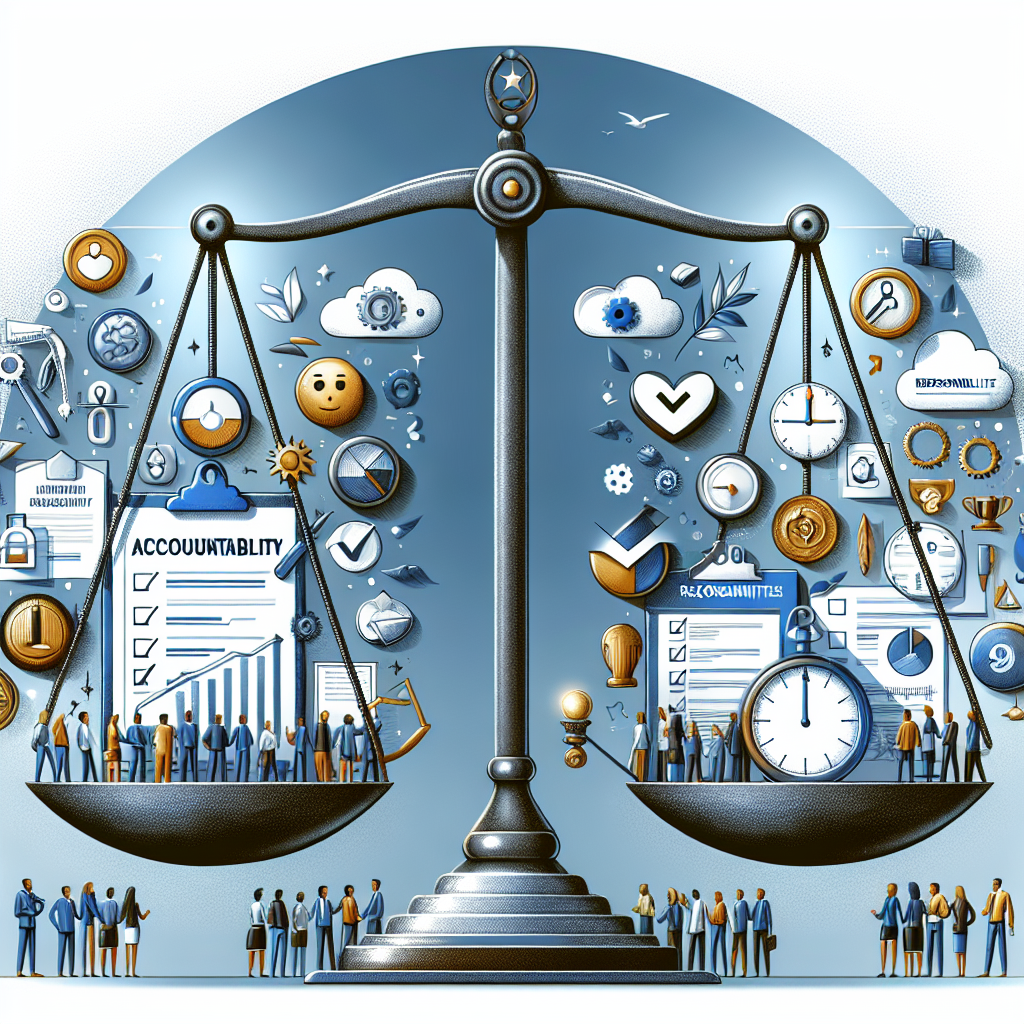Understanding Accountability: A Simple Guide
Accountability is a term we hear a lot these days, especially in personal development and business. But what does it really mean? In this blog post, we will break down the concept of accountability, explore its importance, and give you some practical tips on how to embrace it in your life.
What is Accountability?
At its core, accountability means taking responsibility for your actions, intentions, and outcomes. When you are accountable, you own your choices and their consequences, whether positive or negative. This can apply to various areas of life, including work, personal relationships, or even your own habits.
For example, if you promised to finish a project by a certain date, being accountable means you take charge of that commitment, ensure you deliver on time, and handle any obstacles that come up along the way.
The Importance of Accountability
Building Trust
One of the primary benefits of accountability is that it helps build trust, both in personal relationships and professional settings. When you hold yourself accountable, others see you as dependable. In a workplace environment, when team members are accountable, it fosters a sense of reliability and strengthens collaboration.
Personal Growth
Being accountable is also key to personal growth. It pushes you to reflect on your actions and decisions. When you make mistakes (and we all do!), accountability encourages you to learn from them rather than ignore them. This continuous process of self-reflection can lead to valuable lessons and improvement over time.
Motivation to Achieve Goals
Accountability can be a strong motivator. When you have someone or something holding you accountable — be it a friend, family member, or even a goal-tracking app — you are more likely to stay committed to your targets. For instance, if you set a goal to exercise more, sharing that goal with a friend can boost your motivation because you will want to stick to your word.
How to Cultivate Accountability
-
Set Clear Goals
Start by defining your goals clearly. Whether it’s a personal goal or a professional target, having a clear idea of what you want to achieve makes it easier to hold yourself accountable. Write down your goals and keep them visible to remind you of what you are striving for.
-
Share Your Goals with Others
Sharing your objectives with friends, family, or colleagues can create a support system. When others know about your goals, they can encourage you and check in on your progress. This shared responsibility enhances accountability.
-
Track Your Progress
Keeping track of your achievements and setbacks is essential. You might use a journal, calendar, or digital tool to record your milestones. Observing your progress will motivate you to stay on course and help you identify areas that need improvement.
-
Accept Responsibility
Life can be unpredictable, and we all face challenges. When things don’t go as planned, instead of blaming others or making excuses, accept your role in the situation. This acceptance not only fosters accountability but also empowers you to take proactive steps towards solutions.
-
Reflect Regularly
Set aside time regularly to reflect on your progress. Consider what actions you took that led you to your successes and what prevented you from achieving your goals. It’s a healthy practice that leads to personal growth.
Overcoming Barriers to Accountability
-
Fear of Failure
A common barrier to accountability is the fear of failure. Remember, everyone fails at some point, and it’s a natural part of growth. Embrace challenges as learning opportunities rather than obstacles.
-
Lack of Support
If you do not have a support system, it can be tough to stay accountable. Seek out like-minded individuals, join groups related to your interests, or use social media platforms to connect with others who can inspire and motivate you.
-
Distractions
Distractions can easily derail your focus. Create an environment conducive to concentration, whether at home or work. Identify what typically distracts you and work on minimizing those interruptions.
In the Workplace
In a professional setting, accountability is crucial for a team’s success. Employees who are accountable for their tasks contribute to smoother workflows and better results. Here are a few ways teams can promote accountability:
-
Set Team Goals: Clearly define what the team is aiming for and ensure everyone knows their roles in achieving those goals.
-
Regular Check-ins: Schedule meetings to discuss progress and address any challenges. This keeps everyone on track and encourages open communication.
-
Recognize Achievements: Celebrating accomplishments, big or small, can boost morale and encourage continued accountability.
Conclusion
Accountability is a powerful concept that can lead to personal and professional growth. By taking responsibility for your actions, setting clear goals, and creating a support system, you can enhance your ability to stay committed and achieve your aspirations.
Remember, accountability is not just about meeting expectations; it’s also about learning from your experiences and becoming a better version of yourself. As you incorporate these practices into your life, you’ll find not just success but also greater confidence and trust from those around you.
For more information on enhancing your accountability skills, explore resources like Stock Pulsar and embark on your journey to become a more accountable individual today!



